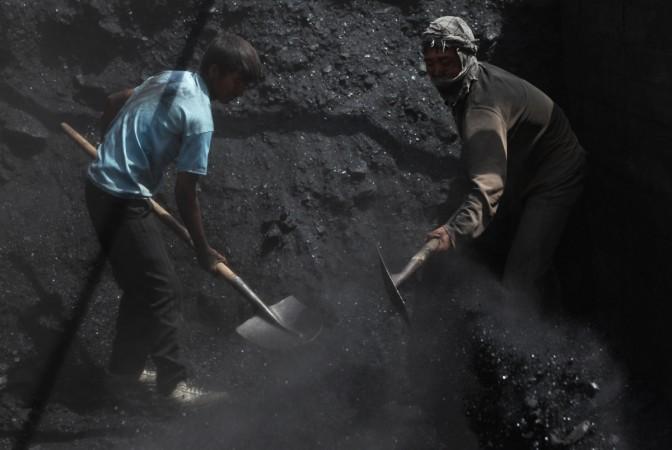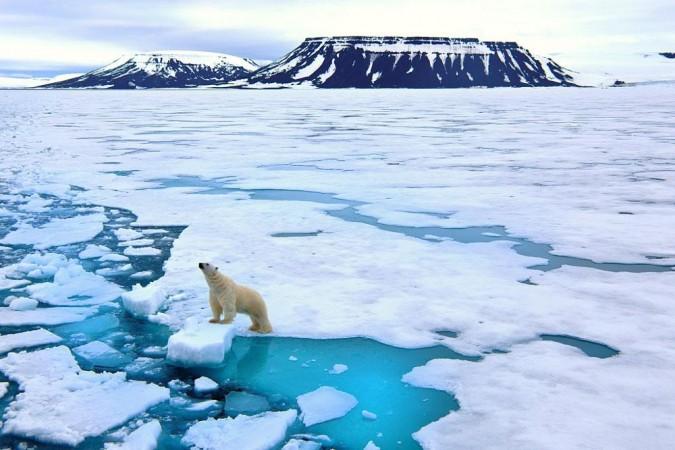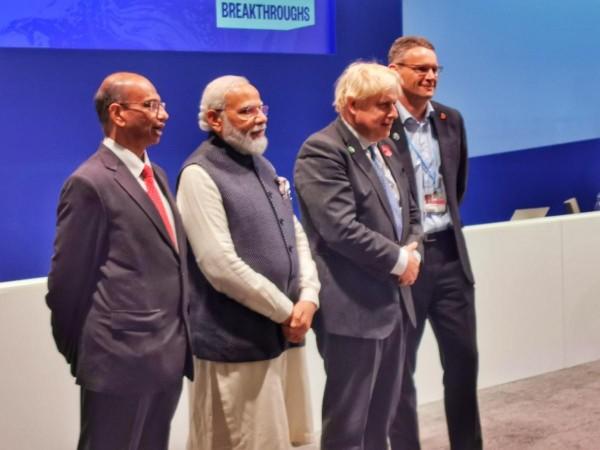After 10 days of hectic parleys, the UK presidency of COP26 on Wednesday released a first draft of the Glasgow climate summit, calling on nations to strengthen their climate targets for 2030 and called for accelerated coal exit and ending fossil fuel subsidies - a historic first - in the UN summit.
The draft includes language acknowledging the world should be aiming to limit global warming to 1.5 degrees Celsius.

However, climate negotiators told IANS the text didn't currently go far enough on the key issues of finance, adaptation, and loss and damage.
Citing an example, they say there is no specific date for scaling up adaptation finance, though some placeholders remain throughout the text waiting for ministerial consultations.
This is in comparison with a well-fleshed out -- though not perfect -- text on mitigation, which includes a recognition that countries need to come back to the table to scale their 2030 climate plans by 2023 to keep 1.5 Celsius target alive and that they need to align these with detailed long-term decarbonisation strategies -- deadline 2022.
There are also -- for the first time -- calls for the acceleration of the phase out of coal and fossil fuel subsidies. There are concerns the text on ambition on emissions won't remain if the provision of finance is not scaled up.
The next step at Glasgow will be for countries to feedback on this text at a stocktaking meeting. The presidency will then conduct more consultations before issuing a second draft of the text in the coming days.

The highlights of the text include commitment for 196 countries to submit net-zero targets and plans in line with the Paris Agreement by 202, countries to accelerate coal phase-out and cut fossil fuel subsidies and key finance line.
Responding the COP26 text, Christian Aid's climate policy lead, Kat Kramer, told IANS: "This is a historic moment as it's the first time a COP text outlines the phase out of coal and fossil fuel subsidies.
"This wasn't even mentioned in the Paris Agreement. However, there's lots of work that needs to be done on the finance side for poorer countries. There's very little on how vulnerable nations are to be supported to adapt and cope with the permanent losses and damages caused by climate change."
Teresa Anderson, Climate Policy Coordinator at ActionAid International, said: "Where is the support to help people forced to pick up the pieces after climate disasters? Where is the action to meet all this talk of urgency? Where are the real commitments that the world needs to limit warming to 1.5C, or to back up the need for action with climate finance?"
Draft Deal best option
"This draft deal is not a plan to solve the climate crisis, it's an agreement that we'll all cross our fingers and hope for the best. It's a polite request that countries maybe, possibly, do more next year. Well that's not good enough and the negotiators shouldn't even think about leaving this city until they've agreed a deal that meets the moment," said Jennifer Morgan, Executive Director, Greenpeace International.
"The text needs to be much stronger on finance and adaptation and needs to include real numbers in the hundreds of billions, with a delivery plan for richer countries to support less developed nations. And we need to see a deal that commits countries to coming back every year with new and better plans until together they get us over the bar and we can stay below 1.5C of warming."
"On the key demands of vulnerable countries there is very little (in the text). On helping these countries adapt to climate impacts and deal with the permanent losses and damage it is very fuzzy and vague. The fact that the deadline for the long promised $100bn of climate finance from rich countries has been missed doesn't even get mentioned. This is a specific ask of poor countries," said Mohamed Adow, Director, Powershift Africa.

With 197 Parties, the United Nations Framework Convention on Climate Change (UNFCCC) has near universal membership and is the parent treaty of the 2015 Paris Climate Change Agreement.
The main aim of the Paris Agreement is to keep a global average temperature rise this century well below 2 degrees Celsius and to drive efforts to limit the temperature increase even further to 1.5 degrees Celsius above pre-industrial levels.
The UNFCCC is also the parent treaty of the 1997 Kyoto Protocol. The ultimate objective of all agreements under the UNFCCC is to stabilise greenhouse gas concentrations in the atmosphere at a level that will prevent dangerous human interference with the climate system, in a time frame which allows ecosystems to adapt naturally and enables sustainable development.










